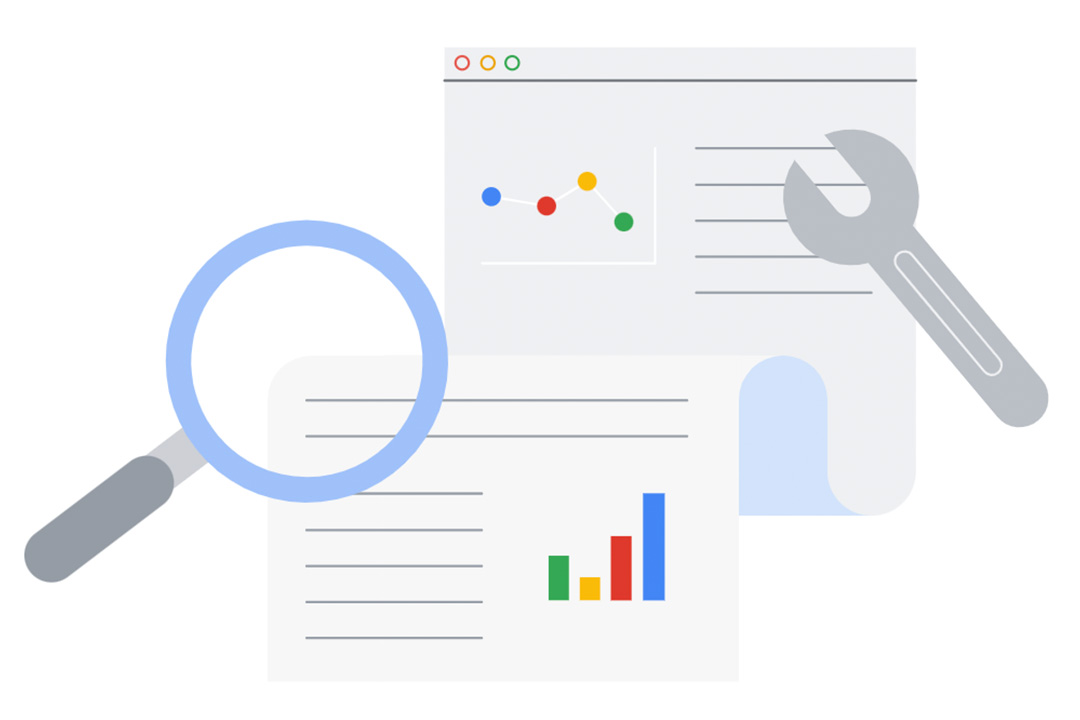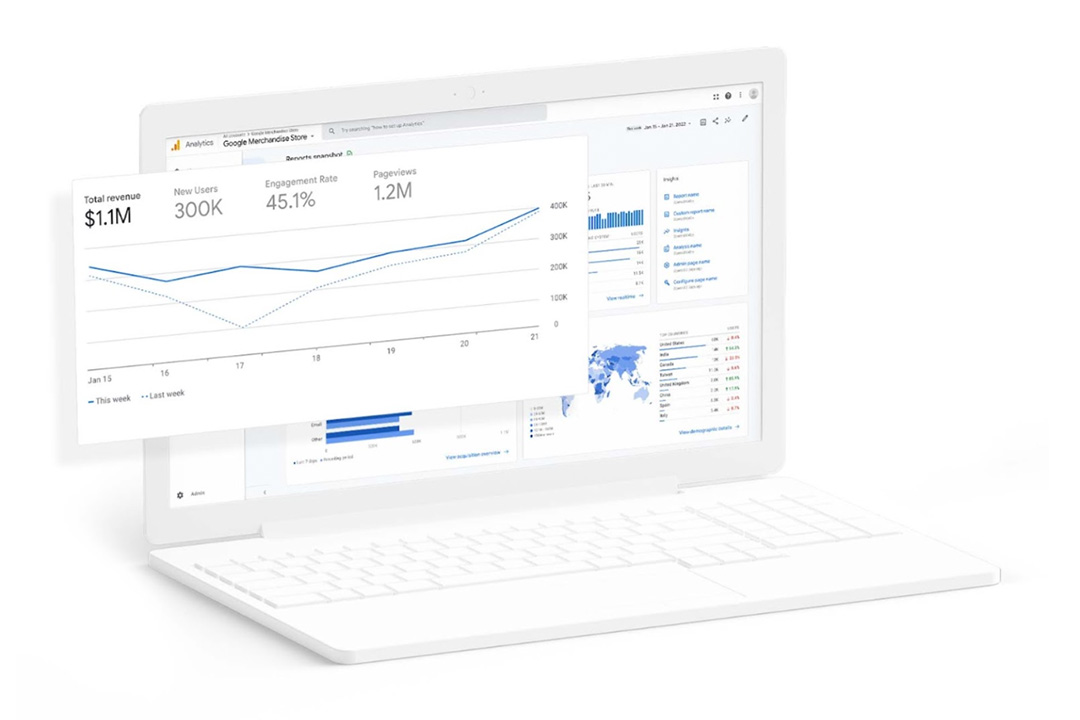Two of the most indispensable instruments in the digital marketer's toolkit are Google Search Console and Google Analytics. Understanding the differences between these two tools is an essential first step towards optimising the performance of a website for search engines as well the user.
This blog will define the differences between Google Search Console and Google Analytics and explore why using them together can be a game-changer.
What is Google Analytics?
Google Analytics is the go-to platform for in-depth analysis of user behaviour on a website(external link). It provides a treasure trove of data, ranging from the number of visitors and their demographics to the pages they visit and the duration of their stay. This comprehensive tool is indispensable for understanding your audience and tailoring your website to meet their needs.
With Google Analytics, you can delve into the intricacies of user interactions, uncovering valuable insights. Track the sources of your web traffic, whether it be organic search, paid advertising, or referrals. Measure the effectiveness of your marketing campaigns and understand which channels are driving the most conversions. Google Analytics can help empower you to make informed decisions by offering a holistic view of your website's performance.
What is Google Search Console?
While Google Analytics focuses on user behaviour, Google Search Console is dedicated to the nitty-gritty of search engine visibility(external link). It allows webmasters to monitor how their site appears in Google search results and offers insights into the keywords driving organic traffic.
Google Search Console provides a wealth of information about your website's search performance. Discover the keywords users employ to find your site, analyse the click-through rates for different queries, and identify potential issues affecting your site's visibility in search results. This tool acts as a direct line of communication between you and Google, alerting you to indexing issues, manual penalties, and more.

What Are the Differences?
Purpose and Focus
The primary difference lies in their purpose and focus. Google Analytics revolves around user-centric data, offering a panoramic view of website interactions. On the other hand, Google Search Console is laser-focused on search-related metrics, making it the go-to tool for optimising a site's presence in search engine results.
User Behaviour vs. Search Engine Visibility
While Google Analytics tells you what users are doing on your site, Google Search Console informs you how your site performs in Google's search results. Analytics tracks user journeys, from entry to exit, providing a holistic understanding of user behaviour. In contrast, Search Console dissects the mechanics of search, helping you refine your SEO strategy for maximum visibility.
Real-Time vs. Historical Data
Both Analytics and Search Console provide historical data but Analytics in particular excels in providing real-time data, allowing you to monitor user activities as they happen. Google Search Console is more retrospective, offering historical insights into how your site has performed in search results over time.

Where Does the Data Come From?
Google Analytics Data
Google Analytics draws its data from tracking codes strategically embedded in website pages. These codes meticulously capture user interactions, such as page views, clicks, and user demographics. Once collected, this trove of information is transmitted to Google's servers, providing marketers with real-time insights into how users engage with their website. The granular data sourced by Google Analytics is instrumental in shaping user-centric strategies, enabling businesses to adapt and tailor their online presence based on the dynamic preferences of their audience.
Google Search Console's Data
In contrast, Google Search Console's data originates directly from Google's search index. This feature allows you to access vital information about how their site performs in Google's search results. From revealing the keywords driving organic traffic to offering insights into click-through rates for specific queries, Search Console is a treasure trove for those seeking to refine their site's visibility in search engine rankings. This retrospective tool provides a historical perspective, empowering webmasters to track their site's search performance over time and make informed decisions to enhance their SEO strategy going forward.
Why You Should Use Google Analytics and Google Search Console Together
The Power of Synergy
Using Google Analytics and Google Search Console in tandem can supercharge your digital strategy. Analytics offers a comprehensive overview of user behaviour, aiding in the optimisation of user experience and content. Simultaneously, Search Console fine-tunes your site's visibility in search results, ensuring that your content reaches the right audience.
Maximising Insights for Informed Decision-Making
By leveraging the strengths of both tools, marketers gain a 360-degree perspective on their online presence. This synergy enables them to make data-driven decisions that resonate with both user expectations and search engine algorithms. Whether it's refining content strategies or identifying technical SEO issues, the combined insights of Google Analytics and Google Search Console empower marketers to stay ahead in the digital landscape.
Conclusion
Understanding the differences between Google Analytics and Google Search Console is a first step towards helping you understand how a website performs in search results and how users navigate the site. Analytics provides a holistic view of user behaviour, Search Console hones in on search engine visibility.
Integrating these platforms offers a harmonious blend of user-centric and search-related insights, propelling your digital strategy to new heights. Embrace the power of both tools, and it can give you a competitive advantage over your competitors.
The benefits extend beyond optimisation and visibility; mastering these tools facilitates strategic decision-making. Armed with a comprehensive understanding of user behaviour and search engine dynamics, businesses can make informed decisions to stay ahead of the competition. Whether it's refining marketing campaigns, adapting content strategies, or addressing technical SEO issues, the insights gained through mastery of Google Analytics and Google Search Console serve as the cornerstone for effective and adaptive digital strategies.




